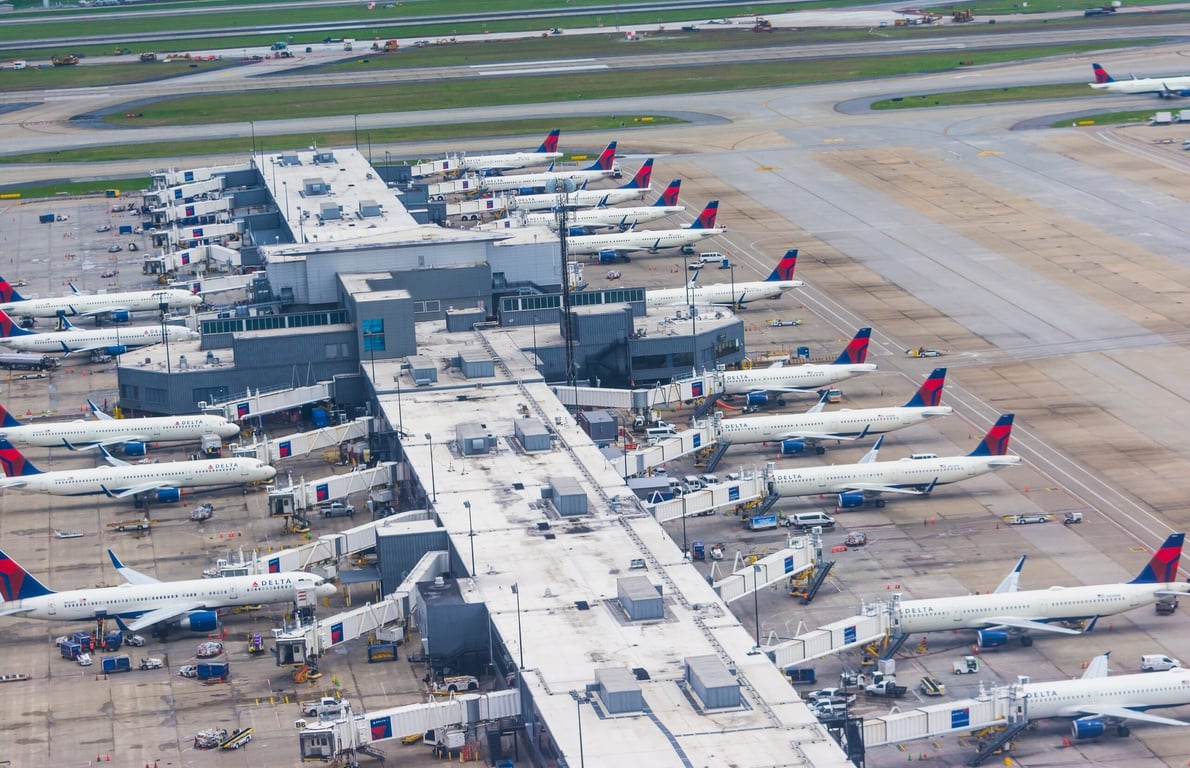The Rise of Personalized Airline Pricing
Airline pricing is undergoing a dramatic transformation, driven by the use of artificial intelligence. This shift is changing how travelers interact with airlines and could significantly impact how people find and book flights. Delta Air Lines has taken a bold step in this direction, using AI to tailor ticket prices based on individual customer data. While this approach may seem innovative, it raises concerns about fairness and transparency.
The pilot program, which currently affects approximately 3% of Delta’s domestic flights, uses AI to analyze customer data and adjust prices accordingly. This system can consider factors such as browsing history, past purchases, and even financial profiles. The result? Two passengers sitting next to each other could end up paying different prices for the same seat. This level of personalization is a far cry from traditional fare structures, which were based on simpler factors like advance purchase timing and cabin class.
How AI Pricing Differs from Traditional Fare Structures
Traditional airline pricing models have long relied on straightforward principles. Booking early often results in lower prices, while last-minute bookings tend to be more expensive. These rules are relatively easy to understand and apply consistently across all customers.
However, Delta’s AI system, developed in partnership with Fetcherr, goes much deeper into personal data. This technology can analyze everything from web browsing activity to income levels and past purchase history. A vacation that was once a splurge might signal to the AI that a traveler is willing to pay more for flights. This creates a complex web of variables that can influence pricing in ways that are not immediately apparent to the traveler.
Critics argue that this system does not always reward loyal customers. Instead, it may offer the best deals to wealthier individuals while charging more to those with fewer options. Reports suggest that the AI pricing model sometimes results in the wealthiest customers receiving the best deals, while the poorest travelers face the worst prices.
Industry Response and Expansion Plans
Delta has been open about the success of its AI pricing pilot program. During a recent earnings call, President Glen Hauenstein highlighted “amazingly favorable” results. The company plans to expand AI pricing to 20% of domestic tickets by the end of the year. Hauenstein also mentioned Delta’s goal to eventually eliminate static pricing entirely. When a major carrier like Delta achieves such success, competitors are likely to take notice.
Fetcherr, the Israeli company behind the AI technology, already works with several other airlines, including Virgin Atlantic, WestJet, Azul, and VivaAerobus. The company is considering expanding beyond airlines into other travel sectors, such as hotels, rental cars, and vacation packages. This could lead to a broader adoption of personalized pricing models across the travel industry.
Regulatory Concerns and Consumer Backlash
The use of AI in pricing has drawn criticism from lawmakers and regulators. Arizona Senator Ruben Gallego has vowed to block Delta’s plans, calling the practice “predatory pricing.” He argues that using AI to identify a traveler’s pain points and charge more is unfair and potentially harmful.
Federal regulators, including the FTC, are also examining whether individualized pricing violates consumer protection laws or discriminates against protected classes. If an AI system charges different prices based on data that correlates with race, gender, or ethnicity, it could violate federal anti-discrimination laws.
Delta maintains that it has “zero tolerance for discrimination” and claims that fares are based solely on trip-related factors like advance purchase and cabin class. However, without public reporting on how the pricing works, it is difficult to verify if the system is fair or potentially breaking federal laws.
Protecting Yourself from AI Pricing
While legislative solutions are still developing, travelers can take steps to protect themselves from algorithmic pricing. One effective strategy is to use a VPN when shopping for flights. Other measures include shopping in incognito mode, clearing cookies before searching, and using different devices or browsers for comparison shopping. Avoiding login sessions that could identify you to pricing algorithms is also recommended.
Some experts suggest creating a separate email address solely for flight searches. This email should not be used for shopping or social media to appear as anonymous as possible to pricing systems. Using third-party booking sites might also help shield your identity from airline algorithms.
Additional Savings Opportunities
For those looking for additional savings, joining organizations like AARP can provide significant benefits. Membership offers discounts on flights, rental cars, restaurants, and hotels. The cost is as low as $15 per year, and members often recoup the cost quickly through the discounts they receive.
By staying informed and taking proactive steps, travelers can navigate the evolving landscape of airline pricing and make the most of their travel experiences.






